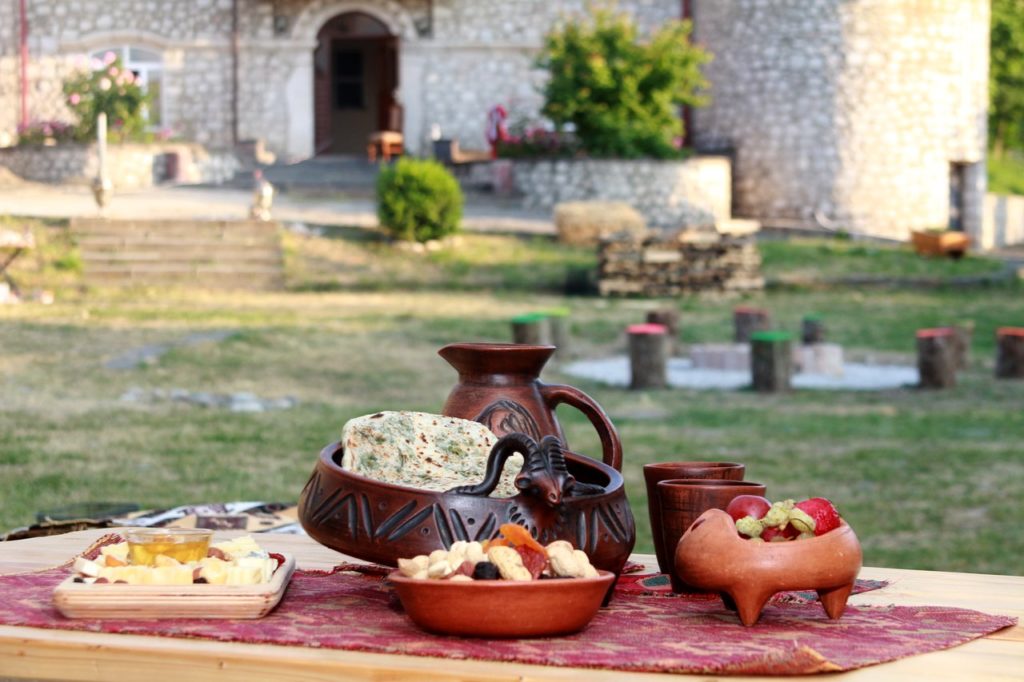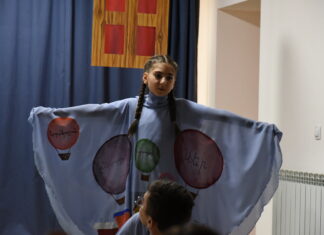STEPANAKERT — Walking down the Vazgen Sargsyan Avenue in Stepanakert, one can notice the smoke rising from a samovar near dark-brown fences that demarcate a gray compact building along the sidewalk. That is Bazhak (“glass” as in wine glass) — a new downtown café that attracts passers-by with its abundance of wine and the enticing smells of its cuisine.
From inside, an old Belorussian piano welcomes you with decorated with a vase of poppies and fancy paintings on the walls, which lead you to the hall. The wine corks in a wide container, the collections of wine hanging on the walls, and the paintings of wine glasses give a clue about what you will order soon — probably a dry red Kataro with a dish of fruits.
The story of Bazhak will become clear only after an eloquent conversation with Hayk Avanesyan, the owner of the café, who didn’t give up hope after losing another cafe in the heart of Artsakh, in Shushi.

During the 2020 war, Artsakh, internationally recognized as Nagorno-Karabakh, lost control of the town of Shushi, a symbol of Karabakh both for Armenians and Azerbaijanis. The loss of the impregnable fortress city became the turning point of the war: whoever holds the keys to Shushi is the victor.
“I was shocked,” recalled Hayk Avanesyan, the day of handing Shushi to the enemy. “Words cannot convey my emotions. I thought it was the end. I even wanted to change my surname, never to have the ‘yan’ at the end.”
Avanesyan has been earning his living since his teenage years, and by the age of 20, he became a cook at a restaurant in Stepanakert, later advancing to become manager and then director. This inspired him to start his own business, and soon, he launched his first restaurant in Stepanakert with a friend. Years of experience in the service industry helped Avanesyan master his skills to extend his business and come up with an idea for a second cafe in the fortress of Shushi.










